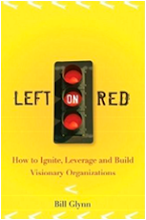US Tax Payer’s New Portfolio of Stocks
We the people have a new broker; The US Government. On our behalf the government has what is called in the brokerage world a discretionary account. This means as a broker it has the discretion to invest and lend on our behalf without our input. So what are we investing in?
Let us start with $1 trillion in our brokerage account. The government is lending most of that money to various companies; banks, brokerages, automotive companies and insurance companies like AIG. This is equivalent to having secured interest in the companies and the hope the loans will be paid back with no guarantee. Although secured by the assets of the companies the government is taking into account the risk of the loans and charging a very high interest rate. The higher interest rates are expected because it is equivalent to buying junk bonds. So our portfolio is growing with predominately very high risk assets almost like a venture capital or venture lending company.
In addition, the government is taking large equity stakes and what are called warrants to further risk adjust our investments. Warrants allow the government to buy stock in the future at a set price, typically very low, and when the stock rises it makes money on the difference between that strike price (the negotiated set price) and the stock price when the stock is bought and sold. Actually this occurs as a “cashless” exchange where the government pays a fee to buy and sell the stock simultaneously and just nets out the profits for our portfolio.
Further our broker is buying stock or receiving stock in the companies for making loans or outright purchasing shares of the businesses held in treasury so the companies can unload stock not already floating around in the public market and take the proceeds directly into their businesses. This too is at a negotiated price and typically below market value. This creates what is called an market overhang. Simple way to put it is that the shares now held in our portfolio have been purchased below market value and the market knows this. Knowing the stock is owned at this price and the guarantee of selling the stock when the price goes up shapes what the street value of the stock is and often because the amount of shares owned is so large the value typically goes below the price the government bought it for us.
So what does this mean for our investments. We now hold and are accumulating very risky assets and high interest loans. This combination is exactly how the venture capital industry works. The way money is made is that many of the investments and loans fail. Let us say 8 out of 10. Some ventures capitalist do better than others. The idea is that the 2 successful investments are so successful that the entire portfolio of investments are paid back and a lot of profit is made. An example is we invest $100 million in a variety of private companies say $10 million each. We lose $80 million on the 8 dogs and then we have a Cisco and Apple Computers like hit and we make an astronomical amount of profit. Will this be the case in the portfolio the government has created for us? Very Unlikely!
Here is the bottom line. Our new portfolio that is growing as every loan and investment is made just like the contemplated Citigroup stock purchase. The risk we are taking is so high the returns expected should be commensurate with the risk but won’t be. However, the government is investing our money in a way that can not only return our capital but potentially make a lot of money. I don’t support nationalizing companies and industries, although unfortunately necessary given the catastrophe, but at the end of the day if it all works the risk taken on our behalf by our new broker should pay off to at least return our money at a minimum. When and if the investment pay back our money the companies will then be un-nationalized and return back into the private sector.
This the reality of what our broker is doing on our behalf. Do I think our money is safe. No not by a long shot. Do I think we will get at least our money back – YES. I also expect that we make a hefty profit but the jury is out on our brokers ability to execute that. Let us all pray they are good enough to perform.


No comments:
Post a Comment